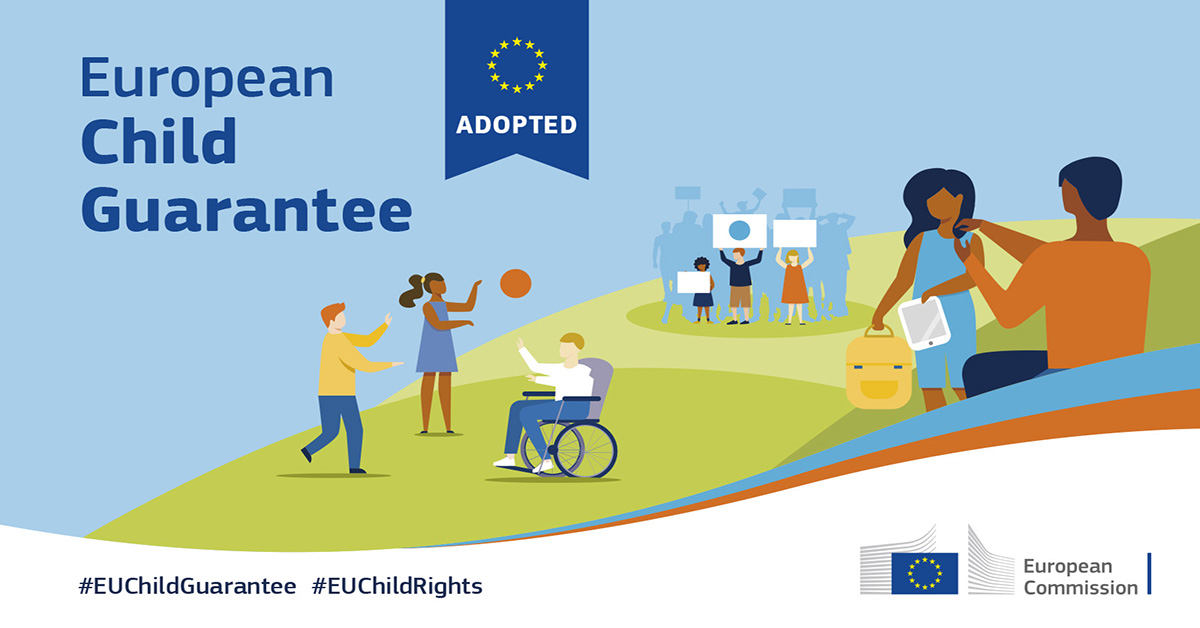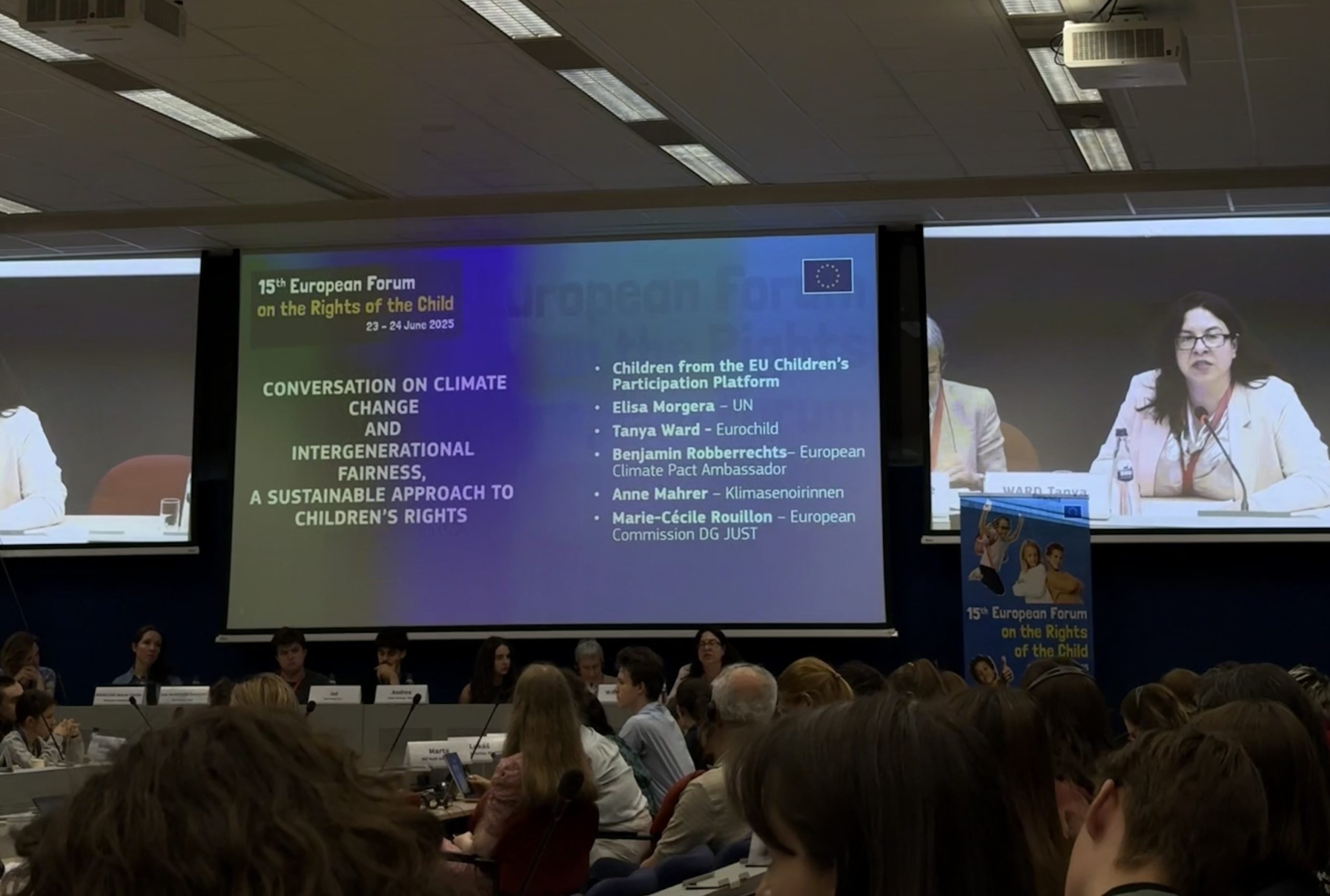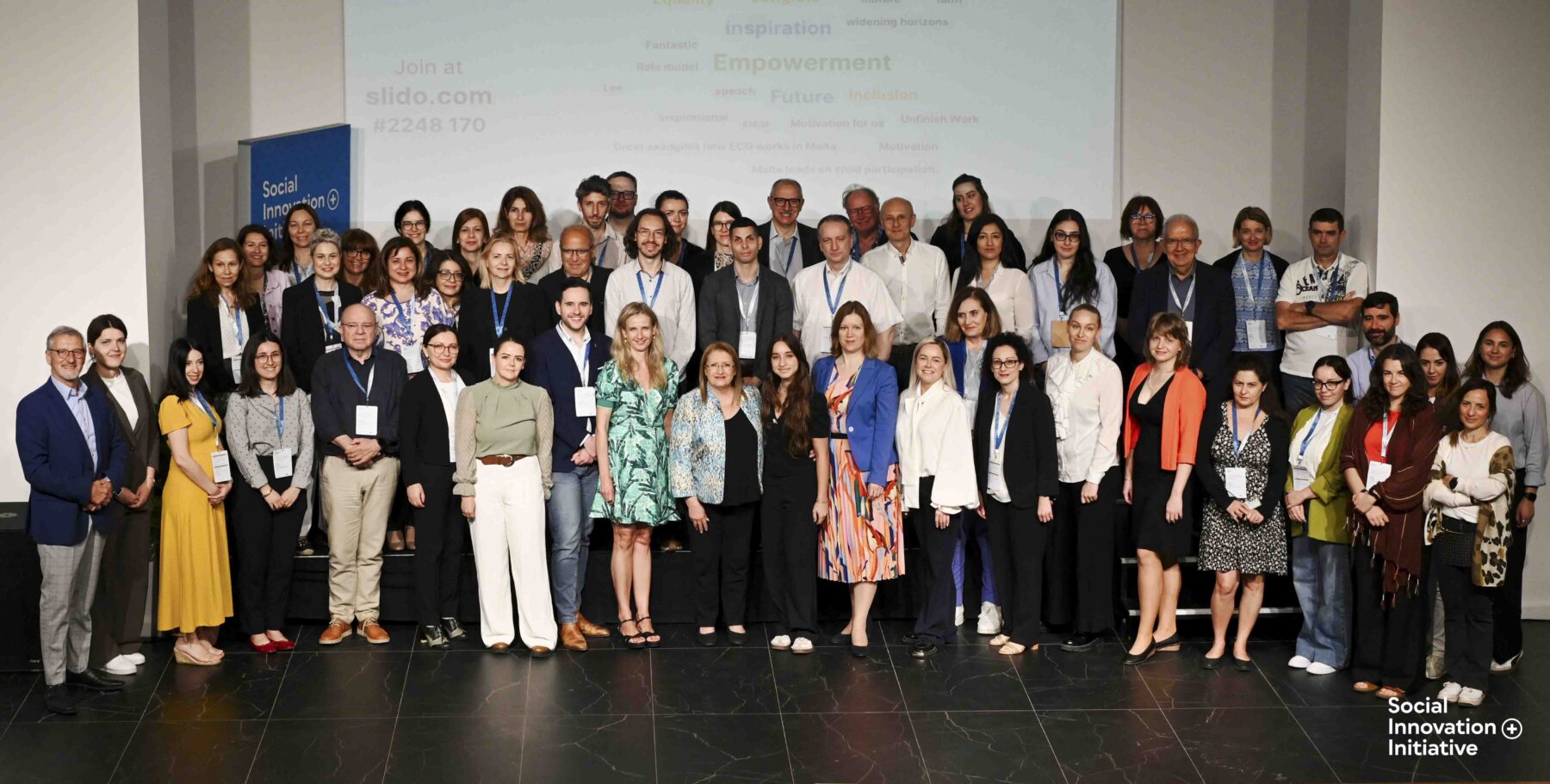Eurochild Public Statement in reaction to the adoption of the Council Recommendation on the Child Guarantee
A new European guarantee for children in need, a great step towards fighting child poverty
Following six years of intense negotiations and advocacy, Eurochild is thrilled to celebrate the adoption of the Council Recommendation establishing a European Child Guarantee. For the first time, the European Union has developed and agreed a flagship instrument that ‘guarantees’ effective and free access for children in need to essential services such as healthcare, nutrition and education.
“The adoption of the Child Guarantee is a historic moment for the protection of children’s rights in Europe. With more than 1 in 4 children facing poverty in the EU before the pandemic, the Child Guarantee initiative is needed now more than ever. The political stamp of approval in the form of the Council Recommendation demonstrates that all 27 EU countries have recognised the urgent need to tackle child poverty and are committed to act.” – Jana Hainsworth, Secretary General of Eurochild.
18 million children were at risk of poverty and social exclusion even before the COVID-19 crisis. This figure is expected to increase due to the alarming socio-economic impact of the pandemic. Effective implementation of the European Child Guarantee will help achieve the agreed target of lifting 5 million children out of poverty by 2030. In fact we hope it will motivate EU Member States to set an even more ambitious target.
We are extremely grateful to the European Parliament for having laid the foundation of such a pivotal political instrument, the European Commission for presenting a robust proposal and the Portuguese Presidency for making it a reality.
Achievements and next steps
In part thanks to Eurochild’s advocacy, the Child Guarantee will also be adequately financed. Member States with a level of child poverty above the EU average are required to allocate at least 5% of their ESF+ resources to tackle child poverty, while all the other Member States will have to allocate an appropriate amount of their ESF+. The Recommendation also specifies that the measures outlined in the Child Guarantee national action plans should be financed by various EU funds (such as ERDF, REACT-EU, RRF, InvestEU) and national budgets.
Eurochild and its members have greatly influenced the shaping of this crucial instrument, since the first proposal by the European Parliament in 2015. We are proud to see that the text adopted today includes many of the elements we and our members have been fighting for.
For example, by the end of March 2022, Member States are expected to submit comprehensive National Plans indicating the goals they want to achieve; which categories of children in need they want to address; and how they plan to do so. Member States are also expected to nominate a Child Guarantee national coordinator and to involve children and civil society in the design, implementation, monitoring and evaluation of the national action plan.
While the Child Guarantee is a landmark initiative, we are disappointed that it still refers to ‘placing children into institutions’ as in the ‘best interests of the child’.
The next nine months are a crucial window of opportunity for the Member States to shape their policies and public spending plans, and to pave the way for the eradication of child poverty. We look forward to working with members as we move into implementation phase, converting these important promises into concrete action.
Further Reading:
The Council Recommendation on the Child Guarantee through an Early Years lens
EU Alliance for Investing in Children reacts to the adoption of the Council Recommendation on the Child Guarantee





